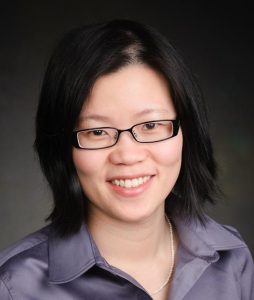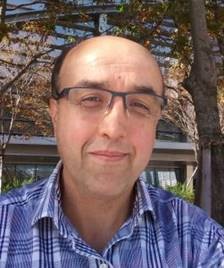Nature-Based Solution is a multi-disciplinary field. BCIT faculty have joined forces to work collaboratively taking an NbS approach. Researchers from various departments such as Building Science, Ecological Restoration and Civil Engineering have come together to collaborate on various green stormwater infrastructure projects on rain gardens/bioretention cells, blue-green roofs, and ecological restorations.
Colleen Chan, PhD, PEng.

Department: Civil Engineering
Colleen is a faculty in the Department of Civil Engineering at BCIT. Colleen’s expertise is in the field of water quality improvement and environmental sustainability. Some specific topics include stormwater quality improvement, chemical contaminant removal in drinking water, sustainable water treatment technologies in developing countries, and filtration systems for water and wastewater treatment systems. Colleen also has experience as a process engineer in an engineering consulting firm where she performed process designs for refineries. She was also part of a research team conducting experiments onboard a Canadian Space Agency parabolic flight to study interfacial phenomena of oil/water emulsions in microgravity environment.
At BCIT Colleen teaches topics related to environmental and water quality engineering, stormwater/rainwater drainage systems, and the impacts of urban development and climate change on ecosystems. She collaborates with researchers and students from various disciplines to examine the interaction of water and ecology in urban environments, with a primary focus on restoring natural hydrological balance and improving water quality in urban streams. Her research includes areas such as the implementation of green infrastructure systems (e.g., bioretention cells, swales, green roofs, and blue-green roofs) to mitigate stormwater runoff, assessing the adaptability of these systems to the impacts of climate change, and investigating chemical pollutant loading in urban streams due to stormwater. Additionally, Colleen evaluates the effectiveness of green infrastructure in removing chemical pollutants and enhancing stormwater quality prior to discharge to streams. Colleen also designs sustainable and low-cost solutions for water treatment technology applicable for use in rural communities and developing countries.
Anayansi Cohen-Fernandez, PhD, RPBio
Department: Renewable Resources
Anayansi has over 20 years of experience in environmental consulting and resource management in Mexico and Canada. Her experience revolves around the effects of projects on landscape ecology and biodiversity. She also has experience in the implementation of restoration and reclamation projects following mining, oil and gas, urban and agricultural disturbances.
While doing her MSc in the tropical forests of Southern Mexico, Anayansi developed a model for sustainable use of natural populations of the multipurpose tree, Bursera simaruba. She later completed her PhD in Land Reclamation and Remediation at the University of Alberta, where she researched reclamation of limestone quarries, re-establishing ecosystem processes and native plant communities and building soils. In her postdoctoral research she evaluated the effects of fine-scale environmental heterogeneity of constructed microsites on native plant species in the Prairie and Parkland Ecoregions of Alberta. At BCIT, Anayansi helps students develop their Applied Research Projects, which have included the evaluation of prairie tallgrass restoration success, plant facilitation effects in a riparian ecosystem, enhancement of soil biocrust establishment to assist reclamation of mine tailings, and the potential of biochar to improve the functionality of rain gardens.
Rodrigo Mora, PhD, PEng.
Department: Building Science
Rodrigo is a Faculty of Building Environmental Systems at the British Columbia Institute of Technology. His areas of expertise are: building environment and systems, building environmental modeling, thermal comfort, and air quality. Over the years Rodrigo has been contributing to professional organizations such as ASHRAE and ASCE, and participating in international initiatives focused on research on healthy and occupant-responsive, low-energy buildings. His current research interest is on environment and occupant sensing and monitoring integral to buildings, building environmental data analytics, and smart building environmental systems.
Rodrigo’s goal is to investigate novel building and urban synergistic environmental systems that are responsive to the needs of people, and in harmony with the environment. Rodrigo’s research focuses on improving the knowledge on modelling and measuring techniques for predicting the performance of environmental systems and their effects on the built environment, and how these affect human health and improve the human experiences. Rodrigo and his team are investigating human and environment adaptive environmental systems to changing patterns of environmental loads, that smoothen the building environmental fluctuations to climate variations, and eliminate or minimize the need for energy-intensive solutions. A central question is: how to design environmental systems to be simple and smart, naturally matching human needs and environmental affordances, while also being robust and resilient to the extreme environmental loads of climate change?
Additional Collaborators at BCIT
Nature-Based Solution is a multi-disciplinary field. Here are various programs and groups associated with the BCIT NbS group:
Rivers Institute (Dr. Ken Ashley)
Chemistry Department (Dr. Kevin Soulsbury)